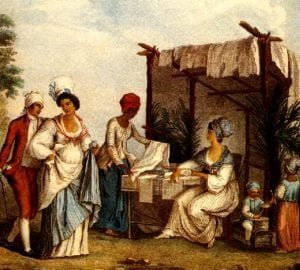Spanish New Orleans
In that city you may go and stand to-day on the spot still as antique and quaint as the Creole mind and heart which cherish it, where gathered in 1765 the motley throng of townsmen and planters whose bold repudiation of their barter to the King of Spain we have just reviewed; where in 1768 Lafrénière harangued them, and they, few in number and straitened in purse but not in daring, rallied in arms against Spain’s indolent show of authority and drove it into the Gulf. They were the first people in America to make open war distinctly for the … Read more

